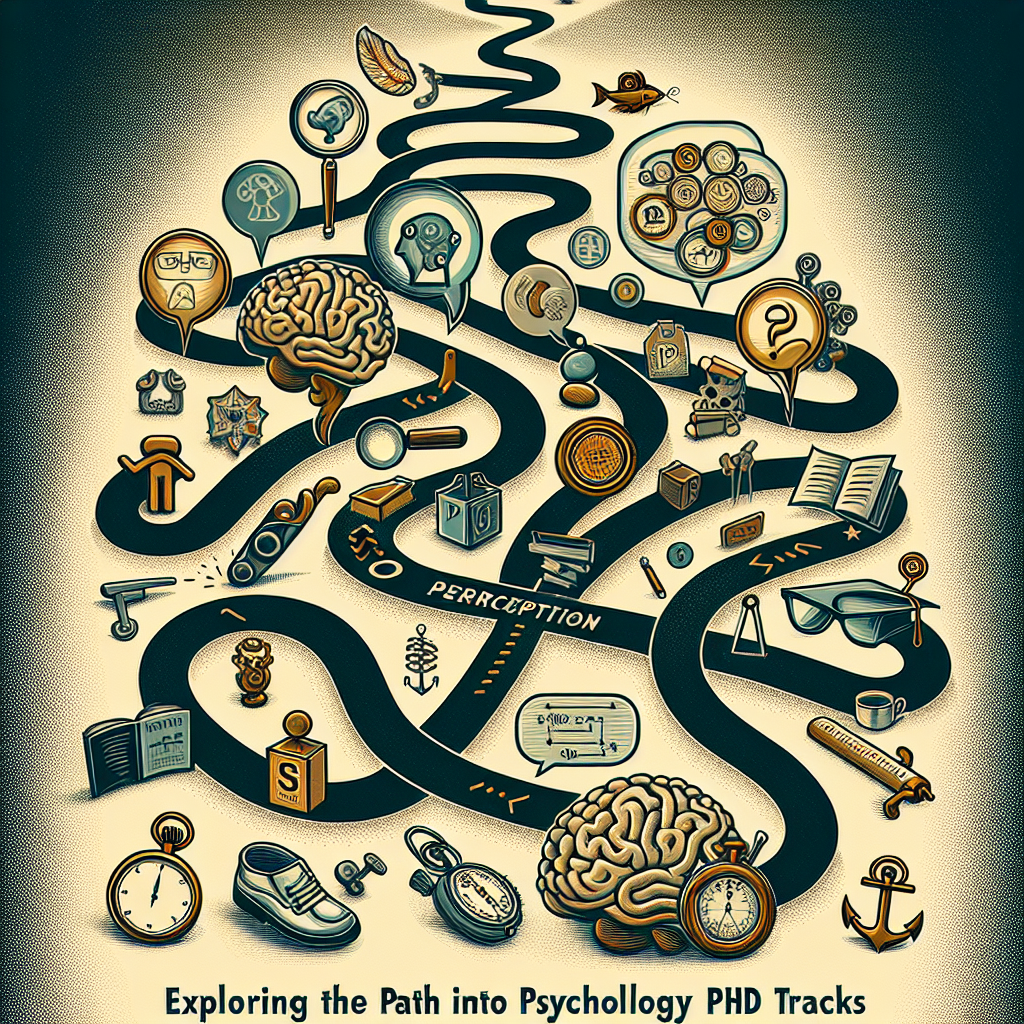
Introduction
As the world becomes increasingly complex, the demand for insightful understanding of human behavior has never been greater. If you’ve ever contemplated pursuing a PhD in psychology, you’re not alone. This academic journey promises both challenges and rewards, yielding opportunities to delve deep into the human psyche and contribute to fields like mental health, education, and organizational behavior. In this article, “Exploring the Path: A Deep Dive into Psychology PhD Tracks,” we aim to provide you with invaluable insights into this intricate educational pathway. We’ll explore various tracks, case studies of successful professionals, and essential tips to navigate your journey effectively.
The Landscape of Psychology PhD Tracks
1. What is a Psychology PhD?
A Psychology PhD equips scholars with the research skills necessary to contribute to diverse psychological fields. Unlike a master’s degree, which often focuses on practice, a PhD emphasizes research methodologies, theory, and advanced statistical techniques. This depth of study enables graduates to conduct significant research, teach at universities, and apply their findings in various professional settings.
2. Diverse Specializations in Psychology
Clinical Psychology
This track focuses on diagnosing and treating mental disorders. Students here often engage in clinical training and internships, working under supervision in real-world settings.
Counseling Psychology
Similar to clinical psychology, counseling psychology emphasizes personal and interpersonal functioning across the lifespan. This specialization prepares students to provide services to individuals, families, and groups.
Industrial-Organizational Psychology
Here, professionals study workplace behavior and how to enhance employee performance and satisfaction. Their findings can lead to more productive organizations, demonstrating a profound impact on corporate structures.
Developmental Psychology
This track explores psychological changes throughout a person’s lifespan. By studying various stages of development, graduates can contribute to fields like education, public policy, and healthcare.
Neuropsychology
Scientists in this specialization examine brain-behavior relationships. In doing so, they can help diagnose conditions like Alzheimer’s and other neurodegenerative diseases.
The Journey from Begin to Graduate
3. Selecting the Right Track
The first major step in “Exploring the Path: A Deep Dive into Psychology PhD Tracks” is choosing the right specialization. This choice should align with your interests, career goals, and the type of research you wish to pursue.
Table 1: Key Considerations for Selecting a Track
| Specialization | Interest Areas | Example Career Paths |
|---|---|---|
| Clinical Psychology | Mental health, therapy | Clinical psychologist, therapist |
| Counseling Psychology | Personal growth, relationships | Counselor, academic advisor |
| Industrial-Organizational | Workplace efficiency & behavior | HR consultant, organizational psychologist |
| Developmental Psychology | Lifespan development | Child psychologist, research analyst |
| Neuropsychology | Cognitive neuroscience | Neuropsychologist, researcher |
4. Application Process
When applying to PhD programs, candidates must demonstrate academic prowess and research potential. This typically involves:
- Submitting GRE scores (if required)
- Providing letters of recommendation
- Crafting a personal statement that reflects your passion and suitability for your chosen track.
5. Funding Your Education
Pursuing a PhD can be an expensive endeavor. Fortunately, many programs offer funding opportunities, such as research assistantships or fellowships. Understanding these options can significantly lower financial barriers and enhance your educational experience.
Notable Case Studies: Real-World Applications
6. Case Study: Clinical Psychology
Dr. Jane Smith, a graduate of a Clinical Psychology PhD program, focused her dissertation on cognitive behavioral therapy (CBT) for anxiety disorders. Post-graduation, she established a private practice while also engaging in academic research, thus bridging practical application with scholarly inquiry. Her work is a prime example of how one can effectively apply theoretical knowledge in a clinical setting.
7. Case Study: Industrial-Organizational Psychology
Through her research on workplace motivation, Dr. Emily Johnson contributed extensively to employee engagement strategies. Her findings not only improved the productivity of various organizations but also emphasized the importance of emotional intelligence in leadership roles. This showcases how impactful research in one PhD track can resonate across multiple industries.
8. Case Study: Neuropsychology
A notable figure in neuropsychology, Dr. Robert Lee focused on the effects of traumatic brain injuries on behavior. His research has practical implications for rehabilitation programs, highlighting the real-world impact of academic inquiries in psychology.
Key Challenges and How to Overcome Them
9. Navigating the Rigors of Research
Research can be daunting; many students face challenges such as writer’s block and data analysis difficulties. Joining study groups or seeking mentorship can provide the support needed to navigate these hurdles.
10. Balancing Work and Study
Many PhD candidates juggle jobs alongside their studies. Time management strategies, like using productivity tools and setting clear priorities, are crucial for maintaining balance.
Conclusion: Your Path Awaits
Exploring the Path: A Deep Dive into Psychology PhD Tracks presents a myriad of opportunities, yet it requires thoughtful consideration and planning. By understanding the various specializations and the requirements of graduate programs, you can position yourself for success in addressing some of the world’s most pressing psychological challenges.
Remember, your journey is uniquely yours. Stay curious, embrace the challenges, and immerse yourself in the experience. The world of psychology is rich with possibilities. Armed with this knowledge, you can make informed decisions that will help lead you toward your ultimate career goals.
FAQs
1. What is the average duration of a Psychology PhD program?
Most programs typically take 5 to 7 years to complete, depending on the research focus and the pace of individual candidates.
2. Are online Psychology PhD programs available?
Yes, several accredited institutions offer online options, allowing for flexibility in study schedules.
3. What career options are available after earning a PhD in psychology?
Graduates can pursue various roles in academia, healthcare, corporate settings, and non-profit organizations.
4. Is it possible to work while pursuing a PhD?
Many PhD candidates work as teaching or research assistants, often funded by their institutions.
5. What is the importance of research in a PhD program?
Research fosters critical thinking, applies theoretical knowledge, and contributes valuable insights to the field of psychology.
By diving deep into the various psychology PhD tracks, from clinical to neuropsychology, this article aims to equip you with the essential knowledge for your journey, so you can confidently say you are truly “Exploring the Path: A Deep Dive into Psychology PhD Tracks.”


















